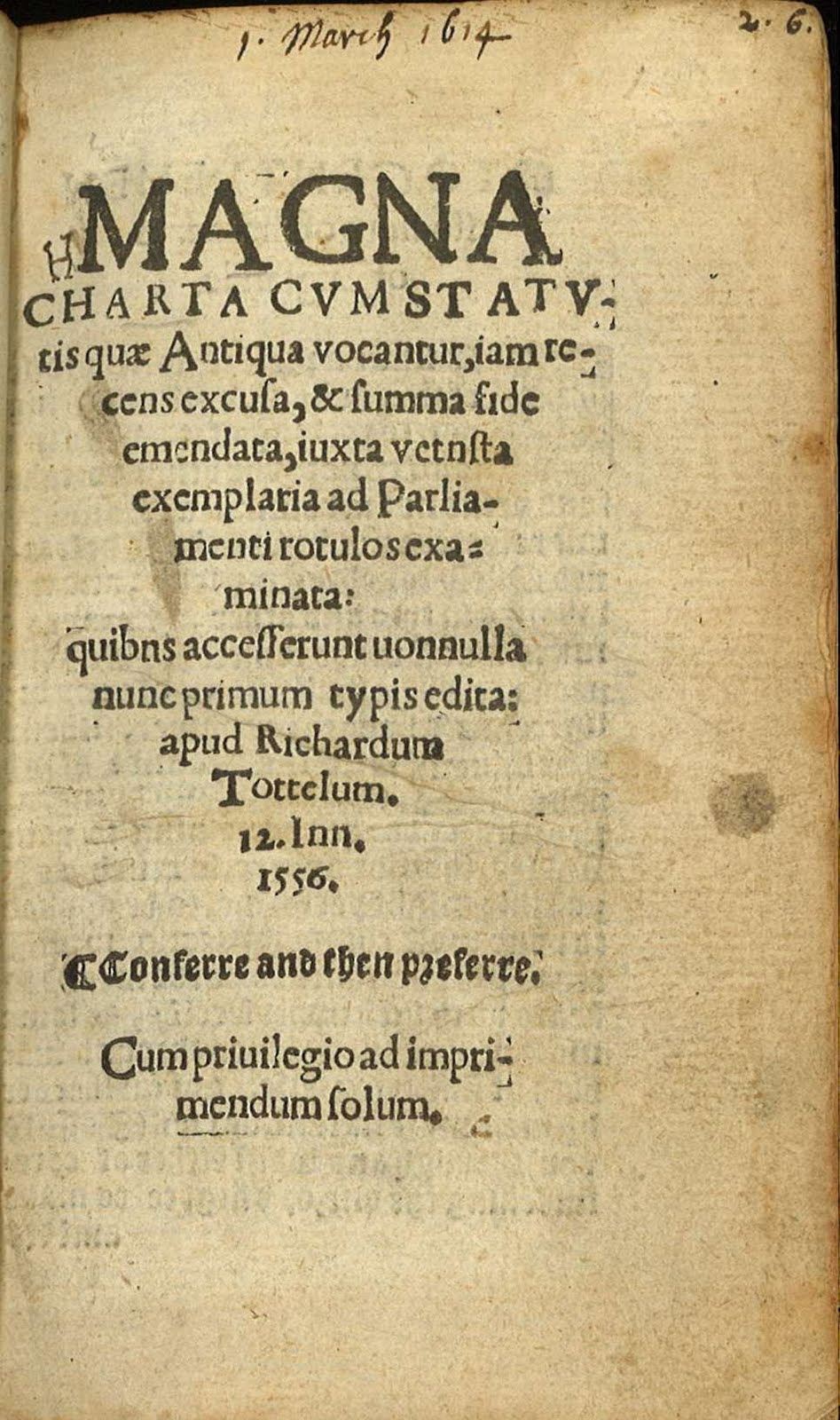From the July-August 2015 issue of News & Letters
by Htun Lin
Karl Marx praised the success of English workers in agitating for the ten-hour day: “In place of the pompous catalogue of the ‘inalienable rights of man’ comes the modest Magna Carta of a legally limited working-day which shall make clear ‘when the time which the worker sells is ended, and when his own begins.’”
This is the 800th anniversary of the Magna Carta. A group of 13th-century English barons forced King John to sign the Magna Carta on June 15, 1215 to protect their rights and property against a tyrannical king. The interests of the common man were hardly apparent in the minds of the men who brokered the agreement.

But one provision held that “No freeman shall be arrested or imprisoned,” or otherwise harmed, “except by the lawful judgment of his equals and according to the law of the land,” the essential sense of the doctrine of “presumption of innocence.”
WHO MUST RESPECT OUR RIGHTS?
In the U.S., the Magna Carta was enshrined in the Bill of Rights as the promise that “no person shall be deprived of life, liberty, or property without due process of law,” and that “In all criminal prosecutions, the accused shall enjoy the right to a speedy and public trial, by an impartial jury.” However that list of rights has in actuality been a list of rights denied. Even today, those rights stop abruptly inside the gates of Guantanamo or Rikers Island.
Kalief Browder was a 17-year-old Black youth, a U.S. citizen, when he was detained at Rikers Island, New York City’s infamous jail, for three years without a trial on suspicion of stealing a backpack. There was no due process for him. Browder was determined to get his day in court to prove his own innocence and rejected plea bargains. But the District Attorney kept delaying his trial month after month in order to force him to accept a plea bargain.
SOLITARY CONFINEMENT AND DEATH
Browder recently took his own life to stop the pain which resulted from the mental torture of near-constant solitary confinement and multiple beatings which he had endured at Rikers Island.
Our rights and freedoms have been defined negatively as putting limits on the power of the state, as in the lawless injustice at Rikers Island. But runaway executive power doesn’t end with police brutality and criminal injustice that the Black Lives Matter movement is calling to account. Abuse of due process extends to the factory floor, where company foremen assert unfettered power over us workers. Their corporate power is backed by the power of the state, represented by the police and military might.
Marx took a long view of realizing freedom in a positive sense. Capitalism, in Marx’s day, used up three generations of workers in a single generation of working days without time limits. The struggle for the eight-hour day spread across the U.S. after the victory over slavery in the Civil War. Marx then traced the generations-long struggle for a normal working day.
The labor movement got labor laws on working conditions and health and safety regulations enacted by Congress and state legislatures, including overtime rules. But with the help of union bureaucrats who have betrayed the workers’ long struggle, company management can put the burden of compliance on the individual worker.
WORKERS ISOLATED BY DESIGN
In practice, the work flow in the shop is now designed to compel the worker, often in isolation by design, to meet a quota set by the company. In order to meet that quota, workers are forced to violate existing rules and regulations themselves, working through lunches and breaks, and often off the clock with unpaid overtime, to “get the job done.”
Marx said that, by its very nature, capitalism will ultimately create its own gravediggers arising from its army of the unemployed. The point for us workers is, through our own collective thought and practice, to let the rulers know that we dig these graves not for ourselves, but for them. Only then can we transcend capital’s concept of time by declaring our own concept of “time as space for human development.”

